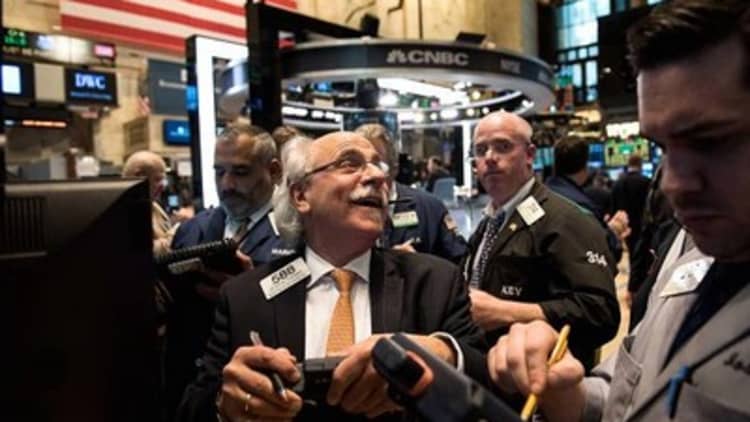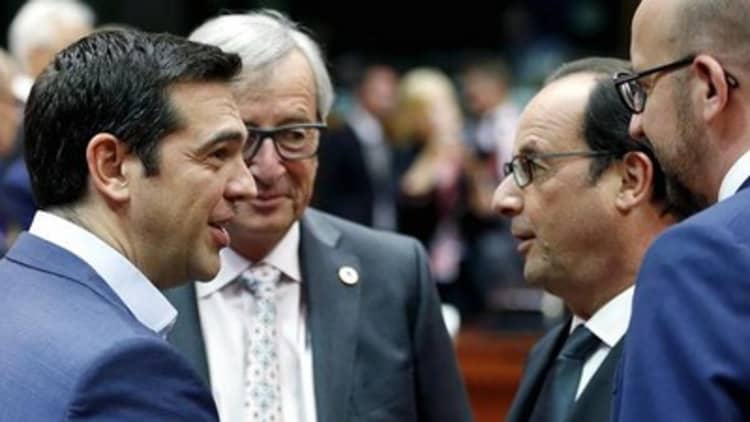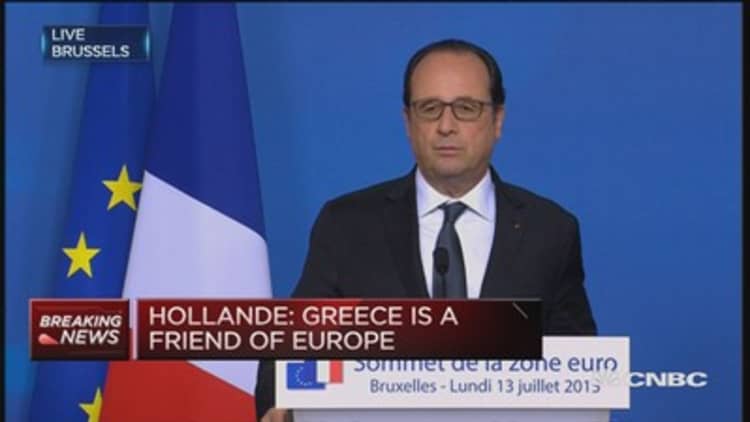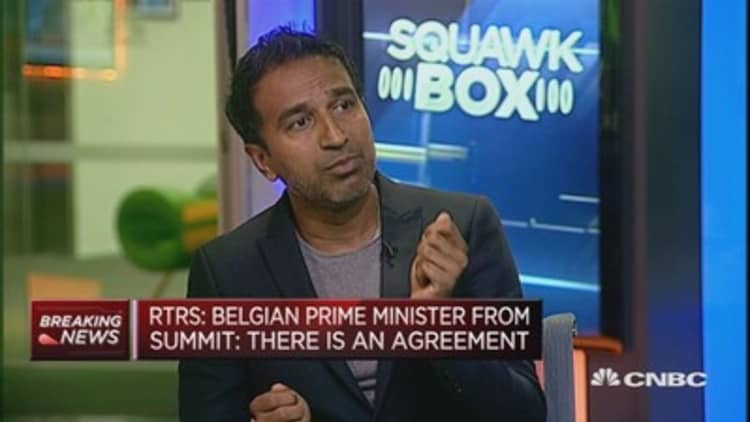



Global markets celebrated the early-morning agreement in Brussels that will help secure a third bailout for Greece, with "risk on" firmly back in play after weeks of uncertainty.
Analysts said that while Greek risks were far from over, the cash-for-reforms agreement announced early Monday meant a hasty "Grexit" was off the table for now with Swiss bank UBS saying the chances of were now below 50 percent.
And that prospect boosted European stock markets almost 2 percent. Meanwhile, in the U.S., the Dow Jones industrial average quickly gained more than 150 points in the open.
Yields on Italian bonds, which move in the opposite direction to prices, fell to their lowest levels since May having spiked higher in recent weeks on Greek contagion fears.
Read More'Agreekment!' Overnight talks result in deal with Greece
"A deal will take a long time to implement and there are serious road blocks on the way, it is not a done deal and you could call it a fragile half deal," Holger Schmieding, chief economist at Berenberg Bank told CNBC's "Worldwide Exchange."
"Having said that, the situation is significantly better than it was last week or the week before."
"We now have a (Greek Prime Minister Alexis) Tsipras that seems ready to implement a deal that all-in-all looks sensible and is progress and markets are right to celebrate that progress," he added.
Finally
After all-night talks at an emergency summit, Greece won conditional agreement to receive 86 billion euros ($95.29 billion) worth of aid over three years, and assurance that it would receive a bridging loan until the bailout deal, subject to parliamentary approvals, is finalised.
In return for the aid, Greece must past sweeping measures through its parliament by Wednesday. These include spending cuts, tax hikes and pension reforms. In addition, 50 billion euro of Greek assets will be transferred into a privatisation fund.
Read MoreGreece and euro zone thrash out a rescue deal
Without a deal, Greece faced economic collapse and a hasty exit from the euro zone.
The euro, which has proved resilient during the Greek crisis, weakened on Monday. It last traded at $1.1080, down 0.7 percent on the day.
"The euro has developed an inverse relationship with European equity markets and to global risk broadly," said Ian Stannard, head of European currency strategy at Morgan Stanley, told CNBC on Monday. "So under this kind of deal, where we see a positive response from asset markets with prices moving higher in Europe that does mean the euro will come under some pressure."
Long road ahead
Still, analysts said the euphoria in markets may be tempered in the days ahead given the long path to pull Greece out of a crisis that has battered its economy and seen its banks closed.
"There are still plenty of risks that are likely to crop up along the way. The deal needs to pass through several parliaments in Europe so there are plenty of hurdles and that could keep volatility in currency markets," said Stannard.
Analysts at Capital Economics added: "A Greek exit from the euro zone might just have been kicked down the road a bit. But unless the new deal includes a substantial restructuring of Greek debt - which is unlikely – Greece's future inside the euro-zone remains under huge doubt."


